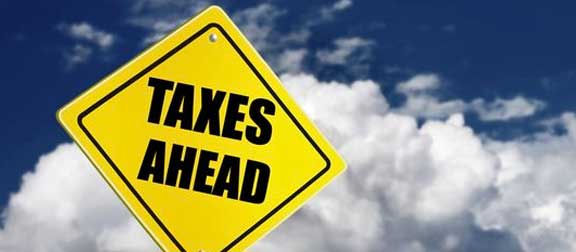Most people get help filing their taxes, either from computer software or a professional tax preparer. Scams have some consumers concerned about who they can trust with their financial data and private information.
A paid tax return preparer is primarily responsible for the overall, substantive accuracy of your tax return(s). If there is a problem with your return or you are audited by the IRS, the tax preparer can help you address the issue and can often represent you. The preparer is required to sign your tax forms (paper or electronic) and provide their preparer tax identification number (PTIN), a number assigned by the IRS.
Better Business Bureau advises taxpayers to be extra cautious when choosing a tax preparer, since that person or company will have access to your personally identifiable information (PII). Here are some BBB tips to help you find a tax preparer you can trust.
Get Referrals. To find a tax preparer, start by asking friends and family for recommendations, then check BBB Business Reviews at bbb.org. Look beyond the letter grade; complaint details and Customer Reviews will tell you about others’ experiences.
Make sure they are properly registered. A tax preparer must obtain a PTIN from the IRS. Never let someone work on your taxes unless they have this number. Don’t be afraid to ask about this or other qualifications; a capable professional does not mind questions.
Look for credentials. Anyone with a PTIN can prepare your tax forms for you, but some tax preparers have more training and qualifications than others. Enrolled agents, certified public accountants (CPAs) and attorneys have unlimited rights to represent their clients to the IRS on all matters. Other preparers can help you with forms and simple IRS matters, but are limited otherwise, and they can’t help you if they didn’t prepare your form. Learn more about tax preparer credentials on the IRS website.
Keep a watchful eye for promises. Be wary of any tax preparation service that promises larger refunds than the competition, and avoid tax preparers who base their fee on a percentage of the refund. Also be wary of “refund anticipation loans,” which can take a hefty chunk of your refund in commission. Refunds are processed quickly these days, so it’s a better bet to just wait for the real thing rather than pay a premium to get it now.
Search for free tax programs. There are several free government programs that prepare taxes free of charge if you meet an income requirement; go to the IRS’s Free File page for more information. Check with your state government to find out about their program (search “file tax free” and your state’s name in a search engine, and look for .gov websites).
Tax Software and Apps. If you plan to file yourself, use tax software or an app that provides both excellent data security and good customer service. Some of the top names in tax prep software are BBB Accredited Businesses, so check with bbb.org first.

